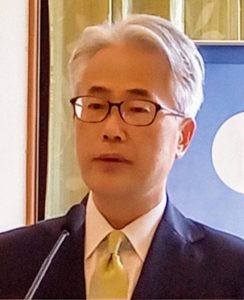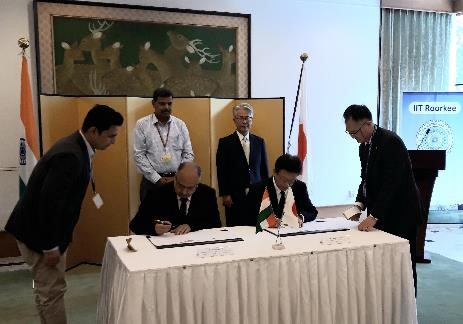Japan’s Fujita Corp, IIT-R join hands to conduct research on earthquake disaster prevention
The research aims to implement this technology in the mid-to-high-rise RC buildings in India, and improve its earthquake resistance and resilience.
NEW DELHI: Japan’s Fujita Corporation and Indian Institute of Technology, Roorkee (IIT-R) have joined hands to conduct joint research in the field of earthquake disaster prevention.
The research is aimed at examining the basic design approach for implementing the seismic response control technologies in India which are frequently used in buildings in Japan, a sever earthquake-prone country in the world.
It ultimately intends to implement this technology in the mid-to-high-rise RC buildings in India with about 55% of its landmass under the risk-prone seismic zone, and improve its earthquake resistance and resilience, and also contribute to the reduction of earthquake disaster and the sustainability of socio-economic activities.
An agreement to this effect was signed between the two institutions during a ceremony for the Conclusion of Joint Research at the Ambassador’s residence, the Embassy of Japan, New Delhi on November 7.
The research will take two years to complete.

Present on the occasion, Satoshi Suzuki, Ambassador-Designate of Japan to India, hoped that this joint research will not only achieve significant success and make a positive impact on materializing disaster-resilient society both in Japan and India, it would also contribute to Coalition for Disaster Resilient Infrastructure (CDRI).
“The field of disaster risk reduction is becoming an outstanding example of Japan India cooperation. So far, the two countries have helped the Indo-Japan workshop on disaster reduction three times in the last year and a half. The last workshop held in March this year focused on three things; collaboration among research institutions, collaboration among cities and collaboration among private companies. As these things characterize disaster risk reduction should be pursued at multiple levels involving various stakeholders,” said Satoshi Suzuki.
Also read: “Built Environment: An Alternative Guide to Japan” exhibition reaches Delhi
The ambassador said both, Japan and India are known as earthquake-prone countries. Japan has developed highly advanced technologies standards through its previous experience of earthquakes.
“At the government level, both Japan and India are committed to effective implementation of a standardized framework for disaster risk reduction for 2015-2030. In this context, responding to the proposal of Indian Prime Minister Narendra Modi for establishing Coalition for Disaster Resilient Infrastructure (CDRI), Japan has announced its participation in CDRI. Japan-India cooperation on disaster risk reduction including this joint research must be a foundation for CDRI as well. I hope the forthcoming joint research will achieve significant success and make a positive impact on materializing disaster-resilient society both in Japan and India,” added Satoshi Suzuki.
The agreement between Fujita Corporation and IIT-R was signed by Yoshinori Kumita, Executive Director of Fujita Technology Center and Dr. Pankaj Agarwal, the Head of Department of Earthquake Engineering of IIT-R, and witnessed by Satoshi Suzuki, Ambassador-Designate of Japan to India, and Dr. Pradeep Kumar, Additional Secretary, National Disaster Management Authority, India.
Memorandum of Cooperation for the purpose of developing cooperation and promoting relations in the field of disaster risk reduction between Japan and India was signed in September 2017. Based on this MoC, the “Indo-Japan Workshop on Disaster Risk Reduction” has been held three times since March 2018, and had held talks on various occasions.
Also read: Japan turns to woods again: 2020 Tokyo Olympics stadium to use wooden roofs, facades
And accordingly, specific measures for public-private collaboration have been taken into consideration.
This joint research is related to cooperation in the field of disaster prevention between Japanese Private Company (general construction company) and Indian national university and originated from the discussion at Indo-Japan Workshop on Disaster Risk Reduction.
Fujita had participated in the Workshop as a member of the private enterprise group of the Japan Bosai Platform (JBP) and consulted with the people involved in the school’s seismic engineering department to conduct joint research.


